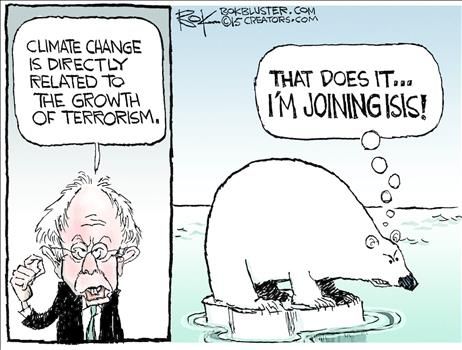http://www.breakpoint.org/bpcommentaries/entry/13/28487

We westerners tend to think that the world should work the way we want it to. But when it doesn’t, then what? Here are some lessons from Paris.
The recent terrorist attacks in Paris have captured the attention of the West like no event since arguably, 9/11. Everywhere you go, especially on the internet, you see the French tri-color and the word solidarité. Which is as it should be. What happened in Paris was horrific. And our sentiments are easy to understand. Like New York, Paris is an iconic western city. Many of us have been to Paris or at least desire to go there. Its landmarks are instantly recognizable like the Eiffel Tower and Notre Dame, and it’s the center of much culture, fashion, and food. As President Obama rightly said, the attacks were an attack on all of humanity. Yet Paris is hardly unique in being the victim of Islamist terror. For example, just a few days before the Paris attacks, a series of ISIS bombings in Beirut left 43 dead.
Yet, as Elie Fares, a Lebanese doctor, wrote on his blog “When my people died, no country bothered to light up its landmarks in the colors of their flag . . . When my people died, they did not send the world into mourning. Their death was but an irrelevant fleck along the international news cycle, something that happens in those parts of the world.”
Speaking of “those parts in the world,” The State Department estimated that, worldwide, 33,000 people were killed in terrorist attacks just in 2014. And it might surprise you to learn that the worst offender isn’t ISIS, but it’s Boko Haram, which like its Arabian counterpart, has declared war on its Christian neighbors.
After [last]Friday, the West is scrambling to find a response to Islamist terror. But part of the problem, as I told you Tuesday on BreakPoint, is that the increasingly secularized West simply does not and cannot understand the motivation and appeal of groups like ISIS. People for whom religion is, at best, something optional, cannot understand people for whom religion is the center of their existence. People who have rejected the Christian eschaton—the end of the current age and the restoration of all things—cannot understand people whose goals are to usher in their own version of the eschaton.
That’s at least partly because the West seems to believe it has already achieved a kind of eschaton in which the reign of human ingenuity and prosperity and technology has supplanted the reign of God. The mark of the secular West is that it actually believes humans are ultimately in control of all things. We believe the world is the way it is because we make it that way. We talk about “directing our own evolution.” It’s a conceit as old as the human race: “you will be like God.”
But of course we aren’t. So when events don’t turn out the way we think they should, our illusion is shattered and our response is panic and flailing.
Think about the apocalyptic language used to describe the impact of climate change. For as long as the earth has existed, the climate has been changing. Things like ice ages and the medieval warm period—when folks were even farming in Greenland—came and went without any help from us human beings. Yet in a few weeks, world leaders will meet in Paris to, only slightly metaphorically, command the seas not to rise by reducing carbon emissions.
---------------------------------------------

---------------------------------------------
Earlier in the day of the attack our President wrongly said that ISIS was contained. And later that day, presidential candidates claimed to be able to fix the world if only they were elected. The assumption that the world is just as we make it is an especially political temptation. And if things go awry, we will simply use our best ingenuity, technology, and willpower to make things the way we want them.
But that’s not the way the world works, and events like what happened in Paris remind us that we are not ultimately in control. That illusion, in times like these, will create, and has created, an incredible sense of anxiety. Thankfully, the church has Someone they can point Westerners to who is not an illusion, but who will ultimately restore all things.
[bold, italics, and colored emphasis mine]
FURTHER READING AND INFORMATION - As Christians continue to pray for the victims of terrorism across the world, may we also demonstrate to a watching world the love and comfort of the One who, as John said, is the restorer of all things.
RESOURCES
"What ISIS Really Wants" - Graeme Wood | The Atlantic | March 2015;http://www.theatlantic.com/magazine/archive/2015/03/what-isis-really-wants/384980/
Restoring All Things: God's Audacious Plan to Change the World Through Everyday People
John Stonestreet, Warren Smith | Baker Books | May 2015






No comments:
Post a Comment